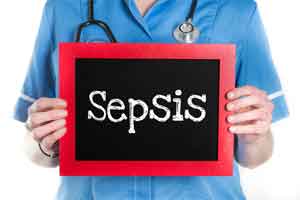- Home
- Editorial
- News
- Practice Guidelines
- Anesthesiology Guidelines
- Cancer Guidelines
- Cardiac Sciences Guidelines
- Critical Care Guidelines
- Dentistry Guidelines
- Dermatology Guidelines
- Diabetes and Endo Guidelines
- Diagnostics Guidelines
- ENT Guidelines
- Featured Practice Guidelines
- Gastroenterology Guidelines
- Geriatrics Guidelines
- Medicine Guidelines
- Nephrology Guidelines
- Neurosciences Guidelines
- Obs and Gynae Guidelines
- Ophthalmology Guidelines
- Orthopaedics Guidelines
- Paediatrics Guidelines
- Psychiatry Guidelines
- Pulmonology Guidelines
- Radiology Guidelines
- Surgery Guidelines
- Urology Guidelines
Recognize sepsis as a separate cause of illness and death: Global Sepsis Alliance

Sepsis should be recognized as a separate cause of illness and death around the world. This focus would help efforts to prevent sepsis by improving hygiene, nutrition and vaccination rates and also lead to timely treatment, better outcomes and quality of life for people with sepsis, argue researchers in a commentary.
Sepsis is life-threatening malfunction of an organ because of infection. It is associated with 25% to 30% of hospital deaths and increases to 40% to 50% in patients with complications and those in lower-income countries. Sepsis can result from infections due to many organisms, including bacteria, viruses and parasites. Malaria and infections in the respiratory and gastrointestinal systems are the most common causes.
"Despite its burden, sepsis is not well recognized as a leading cause of death in its own right," writes Dr. Niranjan Kissoon, a member of the Global Sepsis Alliance and a researcher at the University of British Columbia and British Columbia Children's Hospital, Vancouver, BC, with coauthors.
The authors stress that efforts to prevent sepsis are of paramount importance, especially in low-income countries where health care facilities are few and poorly resourced. However, in addition to prevention, "a focus on clearly identifying a patient as having sepsis will help to ensure that health care providers recognize that the patient is critically ill so as to begin rapid mobilization of life-saving therapies," write the authors. "In addition, developing a framework around sepsis allows hospitals to develop care plans and to monitor, evaluate and improve their timely delivery."
"Shifting the spotlight to sepsis as a distinct entity may set the stage for a robust response to this important global contributor to the burden of death and disease," they conclude.

Disclaimer: This site is primarily intended for healthcare professionals. Any content/information on this website does not replace the advice of medical and/or health professionals and should not be construed as medical/diagnostic advice/endorsement or prescription. Use of this site is subject to our terms of use, privacy policy, advertisement policy. © 2020 Minerva Medical Treatment Pvt Ltd